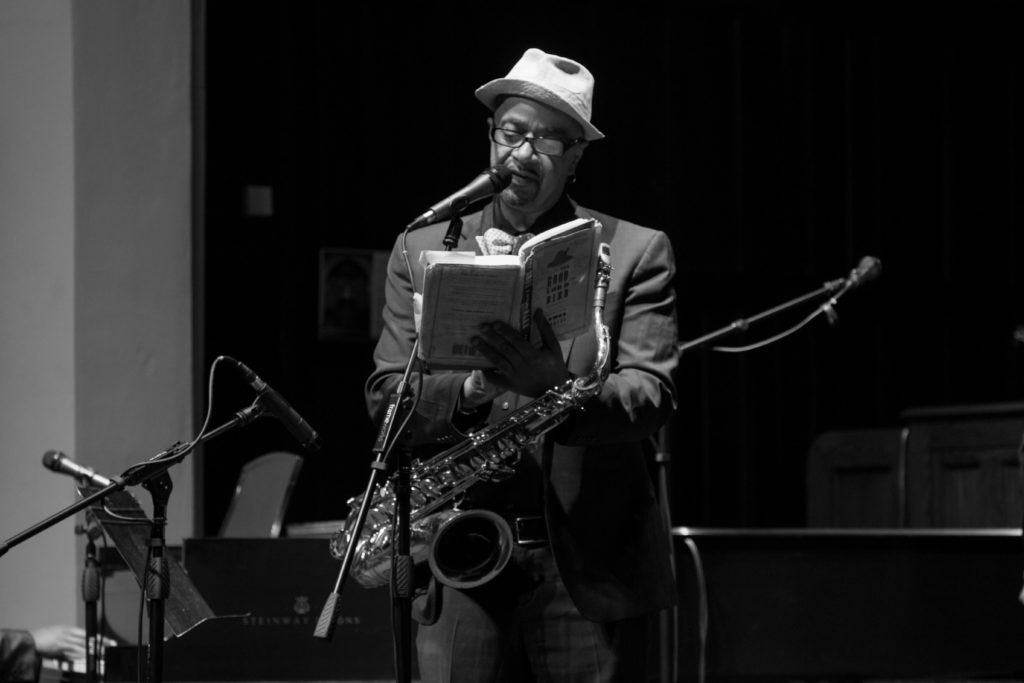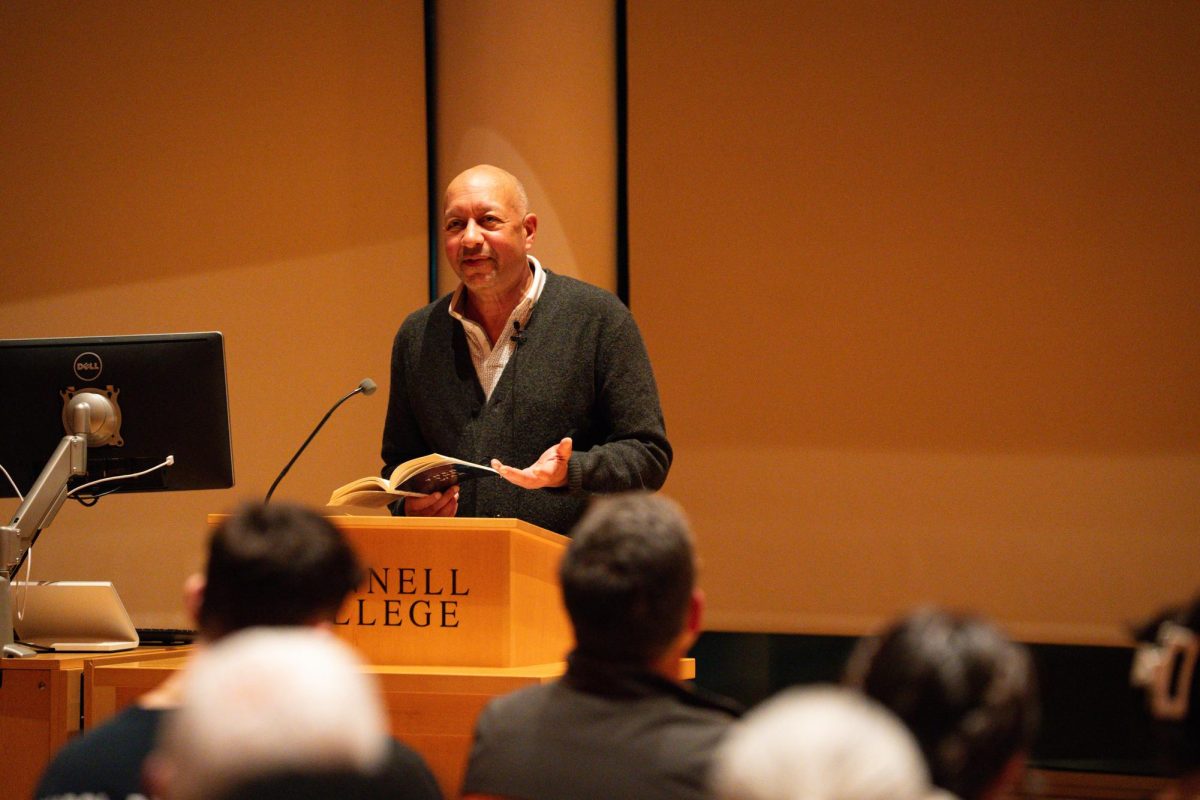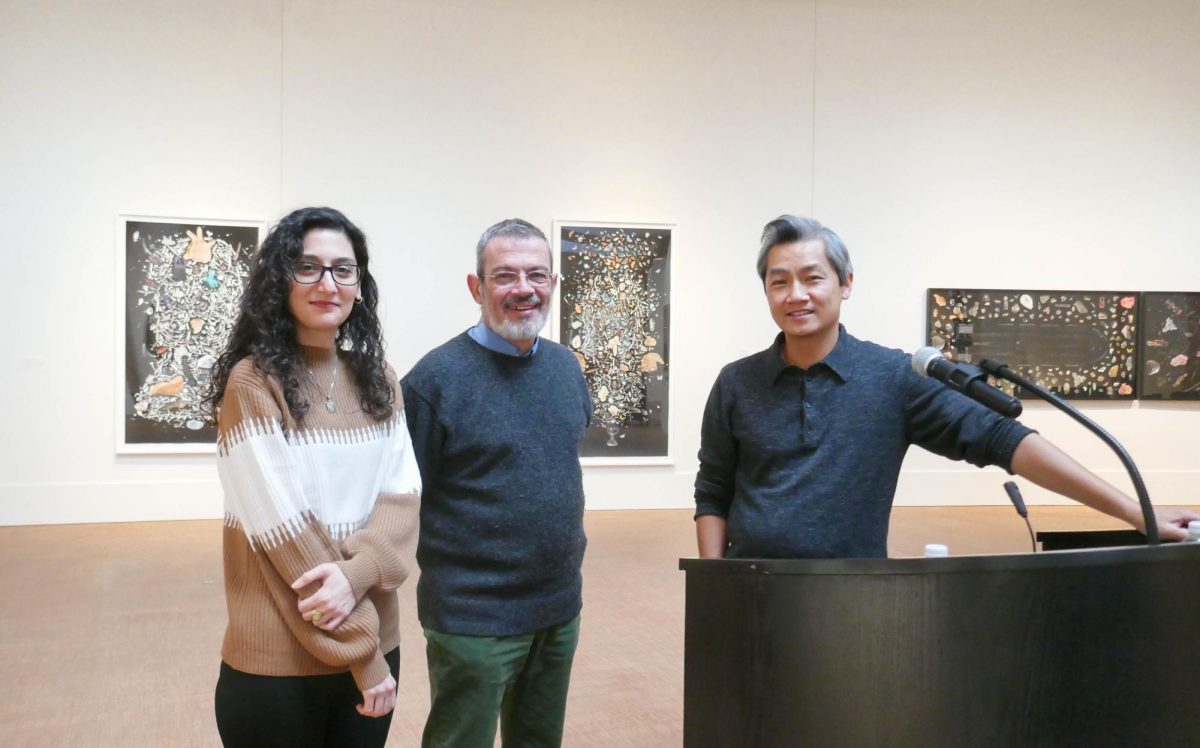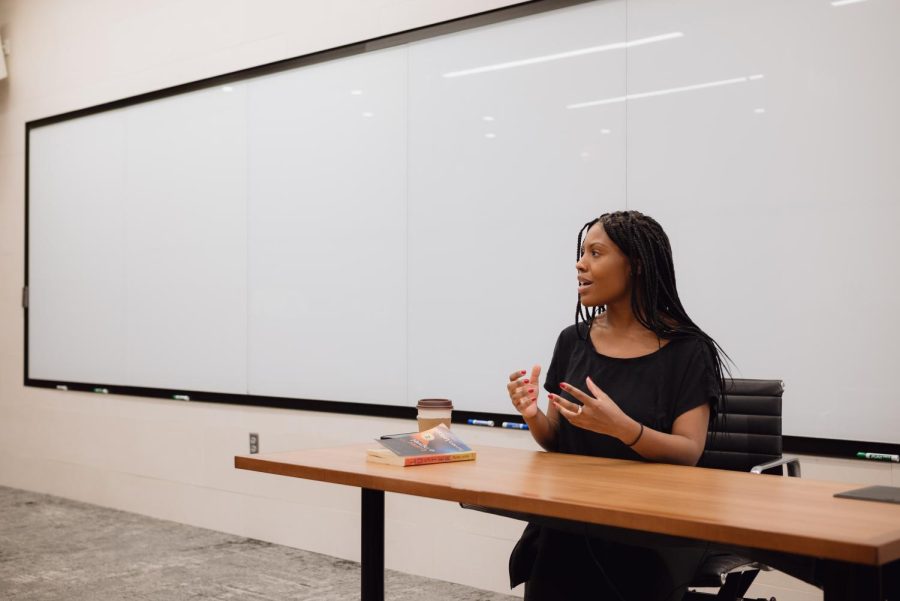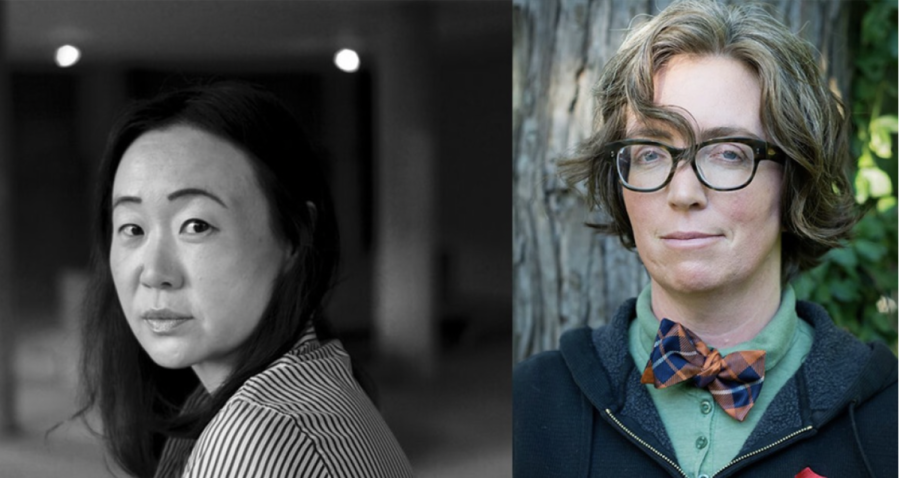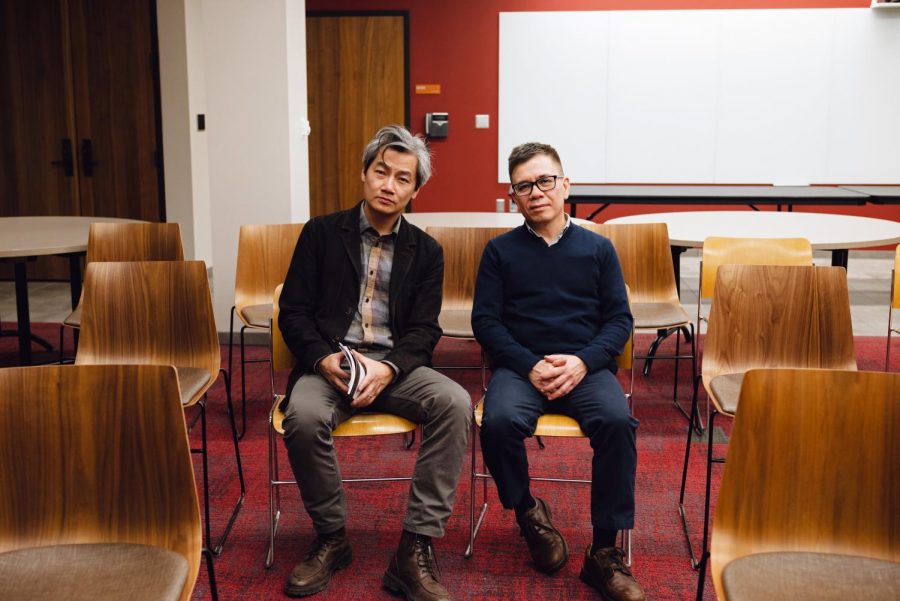
James McBride is an award winning author and musician. His memoir “The Color of Water” was a New York Times bestseller, and his latest book “The Good Lord Bird” won the 2013 National Book Award for Fiction in 2013. This Thursday, McBride sat down with a group of students to talk about music, research and finding your story.
How do you find a story?
Most good stories that I like center around some sort of explosive event that pushes conflict into the world. That world can be of a person or the world in general. Whatever fragment of those you want to grab is where you might want to think about beginning. But some stories don’t begin where you expect them to begin and often you choose a character to focus on, and that character might not be the one to walk you through that story. In terms of entry point of the story, you look for the conflict and work your way into the story in the most compelling way possible.
How has writing changed over time that you can’t write all of your research into a novel?
If you can engage the reader with your talent, you can sustain taking two pages to describe the house, if there’s a character who moves it from one place to the next. I think readers are still engaged in books. I think books are still very popular. I think the attention span of readers now is not what it once was, and also some of that is driven by television habits of Americans, which is pathetically huge. I don’t own a TV so that’s always helped me … Why pollute your mind? If you are a cynical person at the age of 22 or 23, you should probably stop writing right now. Because cynicism will destroy your creativity. It’s okay to be skeptical, skepticism is important, but cynicism is toxic to the good writer. Yes, the book has been done before but you haven’t done it. Yes, the story has been told before but you haven’t told it. Yes, the experience has been lived before but you haven’t lived it. You don’t need to tell everything. Don’t try to push everything on the page because what happens with the advent of the computer, is we find books that are created like this. The writer starts at the top of the story, and then they get stuck, and start inserting, and it starts growing from the middle.
You’re a jazz musician as well, so I was wondering how those different types of artistry inform each other?
Well, to be honest, I never really think about it too much because then you start thinking about it and dissecting the process. … Jazz involves learning a set of musical principles that you have to learn in a classical, twelve-ton, Western form of music. And after you learn that there’s a certain set of rules you have to learn to follow, and then certain structural forms that create songs. After you know that, you push in with what you have. Storytelling in the written form, or in the televised form, involve certain structural elements, so you have to study those structural elements really well before you can express yourself, and know it well enough before you can fool around a little bit. So I don’t know that one informs the other, there is an improvisational quality to writing, where you have to call in the angels and you know when you have it, except the problem is with fiction as with music, it looks great when you finish it and then you go back the next day and think, ‘why did I do that?’ The trick is to just shove forward and what I do, my writing process, is I write the first 30 pages or so in longhand, and then I type it, fool with it, check it out a little bit and push forward. If I feel the top of the book is not right, then I’ll rewrite it and I’ll keep rewriting it until I know the foundation of the story is solid.
You recently wrote a historical novel. Was it fun to write?
The research was difficult. The research is the hardest part, the writing is easy. … I’ve been writing a long time. At my age, I’m just trying to have fun. You need to be like a ventriloquist. … You can’t let the audience see your lips move. And as a writer, you have to sort of let them think it’s easy. Of course, it’s not easy. I haven’t worked in 30 years. There’s going to a job, and there’s work. I’ve had many jobs, but I haven’t worked, because I like what I do. I mean, if I wrote scripts or something I could make a lot of money, but I basically do what I like doing. I would encourage that for you and I’ll close with that, but when you graduate from here, you’ll be under pressure to make a lot of money. You have to like what you do, and if you like what you do making $20,000 a year, you are much richer and much better off than someone who hates what they do and makes $139 million a year.
– compiled by Lily Bohlk




























































